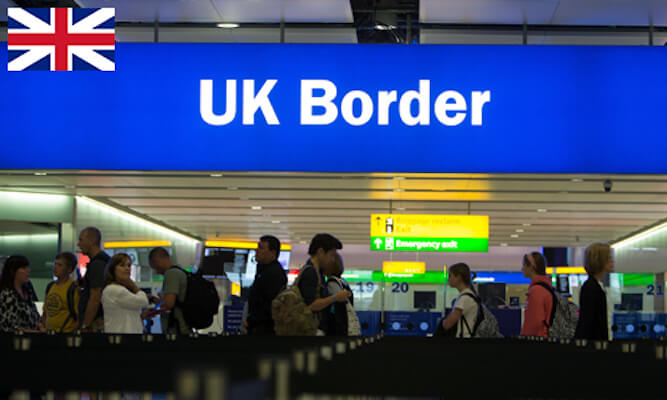By Anke Hassel
For a number of years now the left has been disappearing fast from the electoral scene while the far and populist right has been gaining ground. Social democratic parties have been reduced to single-digit vote shares in France, Netherlands and Greece and face the risk of a similar demise in Germany.
Within countries and centre-left parties themselves there are intense debates taking place about the way forward. The starting point is frequently the legacy of the Third Way that pushed the centre-left towards embracing the middle classes at the expense of the working class. As the centre-left sold out the working and lower middle class, there is a deep issue of trust among the electorate, even if and when the centre-left starts caring about them again. The common ground of many analysts is that the centre-left should focus on core traditional policies such as redistribution, combating poverty, social housing and public spending priorities.
Immigration may be in most EU countries a topic of high salience but it is toxic and almost taboo for the left. Those who dare to address it, such as the Leftish new movement, Aufstehen, in Germany, or some social democratic local mayors who warn of immigrant ghettos in their towns are often attacked. Colin Crouch warned in a recent piece here of “anti-immigrant sentiment”. He wrote:
To assert that the presence of Poles in a local labour market brings down the wages of British workers is not a socialist critique of capitalism but a cynical dog whistle. Locally visible Polish people are present in a way that the abstract idea of capitalism is not and are easier to hate.
It goes without saying that turning migrants into a target of hate is abhorrent and an open society has to respond strongly to racist and xenophobic rhetoric. Does that mean the left should not talk about migration?
There is comprehensive research on the effect migration on wages by labour economists and there is ground to believe that migration affects the wages of those with similar skills negatively and those with higher skills positively. This should not come as a surprise.
It is assumed that the overall effect of inward labour migration on wage growth is negative as low-skilled migrants are hired on lower wages. For instance, the German Bundesbank showed in a report in April that net migration from the EU had a negative effect on wage growth in Germany, especially from 2013 onwards.
Moreover, there is also evidence from studies on the posting of workers in the EU that migrant labour experiences higher rates of exploitation and that trade unions in sectors with high levels of migrant labour find it rather difficult to maintain high levels of unionization and comprehensive collective bargaining which in turn would raise wages and increase protection.
Taken together, the impact of high levels of immigration is likely to challenge the institutions of comprehensive regulation of labour markets on which the European Social Model rests.
The left can choose not to talk about this because of the fear that any mention or analysis of the effects of immigration is in itself already xenophobic. This can, however, badly backfire.
As long as migration is a messy business it remains an easy scapegoat for the far right. Unlike the UK government, which has an immigration target it fails to achieve year in year out, the German government has no explicit migration policy. Net migration into Germany has exceeded 500,000 annually since 2014. Immigration currently stands at more than 1m per year. At the same time, rents in cities such as Berlin have been rising by 10% per year and it is estimated that there is a lack of 2m affordable flats in Germany. While the housing crisis is not caused by migration but by government decisions to end social housing a decade earlier, it shows how little the country is prepared for high levels of immigration.
Dealing with issues
The German government has now decided on a proposal for an immigration law. It allows for third country labour migrants with mid-level skills to acquire work permits for six months while searching for a job. This will apply to any profession including for example truck drivers and cleaners. The German chambers of industry hail victory as, according to their own research, there is a shortage of “skilled” labour in the business of “doormen” and “restaurant workers” and other low-paid industries. Wouldn’t it be more appropriate to insist that work permits for third country nationals be tied to a minimum income or a work contract in order to avoid wage dumping in low-paid services sector jobs? Or a financial contribution by employers towards the integration of migrants or the housing crisis?
Labour exploitation is ripe in migrant communities and workplaces as many immigrants do not speak the language or know their rights. Labour inspection is weakly developed and workplace institutions are often not present. There is no German equivalent to the British Gangmasters and Labour Abuse Authority which deals with rogue employers. The weak implementation of social standards in sectors with high shares of migrant labour creates unfair competition and will eventually bring those standards down.
The left has to find a policy on migration which is strong on anti-racism but does not ignore reality. If Germany wants to avoid the nationalist and anti-migrant turn of British and US politics it has to fight for the values of the open society by making sure that the lower middle class will not suffer from migration. The initial ‘refugees are welcome’ attitude of 2015 is being replaced by a creeping suspicion of economic migration to escape poverty not least because the current mess caused by mixing asylum with labour migration is deeply irritating for many people.
Discussing and proposing proper tools for managing migration is not the same as mimicking xenophobic or racist prejudices in the electorate. Rather the opposite. Open societies need clear rules and strong institutions. Solidarity is indeed the order of the day – as a practical and local exercise to help the new arrivals who are struggling and in the form of strong policies that do not let migration contribute to the undermining of social protection.
* Anke Hassel is Professor of Public Policy at the Hertie School of Governance and Academic Director of the Hans Böckler Foundation’s Institute of Economic and Social Research (WSI). Her research centres on the institutional foundations of business systems, labour rights and corporate social responsibility. Hassel is also a faculty member at the Berlin Graduate School for Transnational Studies.
Published at https://www.socialeurope.eu/why-the-left-must-talk-about-migration











